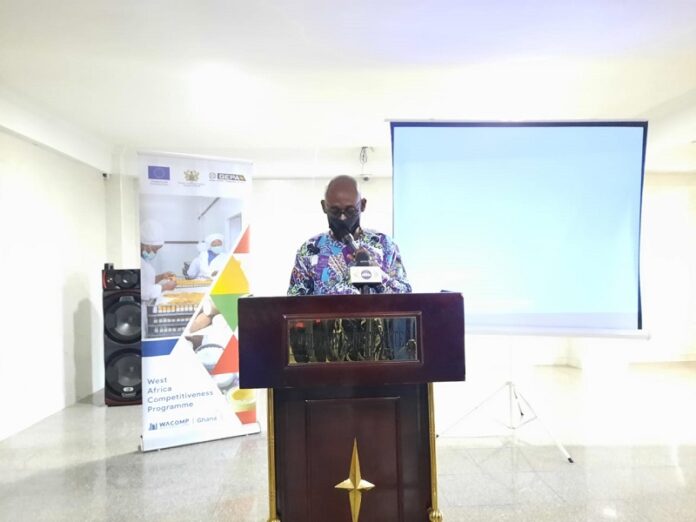
The Agric Ministry is looking to technology to reduce rejection of Ghana’s food export commodities on the EU Market with a drive to fully roll out its E-Traceability system.
The ministry has for the past four years undertaken manual inspections after the EU market banned some fruits and vegetables from the country following the detection of toxins and contamination.
By the end of the year 2023, the Electronic tracking system will fully take over the manual system to ensure that any flagged product is traced to the exact farm for remedial measures to be taken.
Even though Ghana’s food exports enjoy quota wavers on the EU Market per the country’s signature to the Economic Partnership Agreements; the country suffered trade restrictions on its key non-traditional exports in the year 2016 due to phytosanitary conditions caused by biological, physical handling and chemical contamination.

Mr. Prudence Atipo – Head of the Plant Quarantine Division of the Plant Protection and Regulatory Services Directorate (PPRSD) of the Food and Agriculture Ministry made the disclosures speaking at a day’s workshop in Kumasi.
He indicated that the system positions Ghana’s exports on a stronger pedestal on the global scene while giving consumers assurance of the safety of consuming products from Ghana.
He explained, “Per the E-Traceability system, a QR code affixed on every packaged product will generate its entire production and supply chain from farm to export destination. With E tracing, people will no longer be able to aggregate products from unapproved farms for export.”
“The second good thing about the E-Traceability system is that it’s life. If you scan the QR code it tells you which farm the product is coming from, the plant and harvest date, the packhouse and other pieces of information that the consumer and our counterparts need to know,” He added.
Mr. Alexander Dadzawa Director Projects Ghana Exports Promotion Authority (GEPA) pointed out that the mechanism feeds into Ghana’s ten-year National Export Development Strategy to increase its nontraditional export revenue to 25 billion dollars by the year 2029.
He pointed out that the Authority is facilitating roll out of E – Traceability as it focuses its efforts on Ghanaian Shea and Coconut-based cosmetic products, cassava, mango, and pineapples.
Farmers in the Ashanti Region are positive the system, secures them stronger guarantees, their products will be accepted in the EU Market which takes Ghana’s biggest exports.
A yam farmer domiciled in Ejura Nana Yaw Yeboah told reporter Ivan Heathcote – Fumador “the system will benefit me because no more will all the products be banned when we can trace the defects to individual farms.”
The E- Traceability system is expected to improve the manual system which has reduced the flagging of Ghana’s food export products from an average of 350 notifications a day to 10 per year according to the latest figures of the Plant Protection and Regulatory Services Directorate of the Food and Agriculture Ministry.
By: Ivan Heathcote – Fumador
